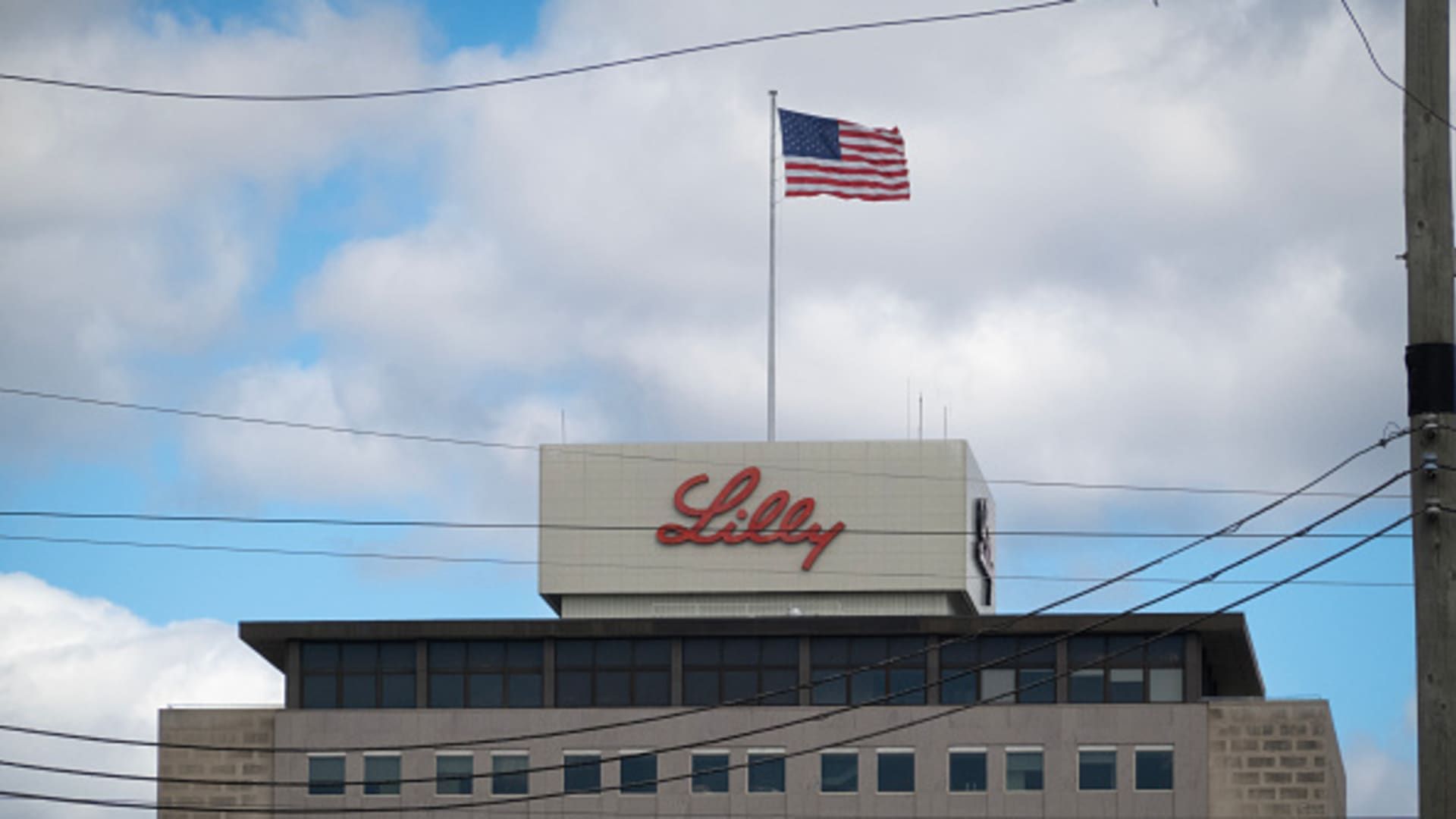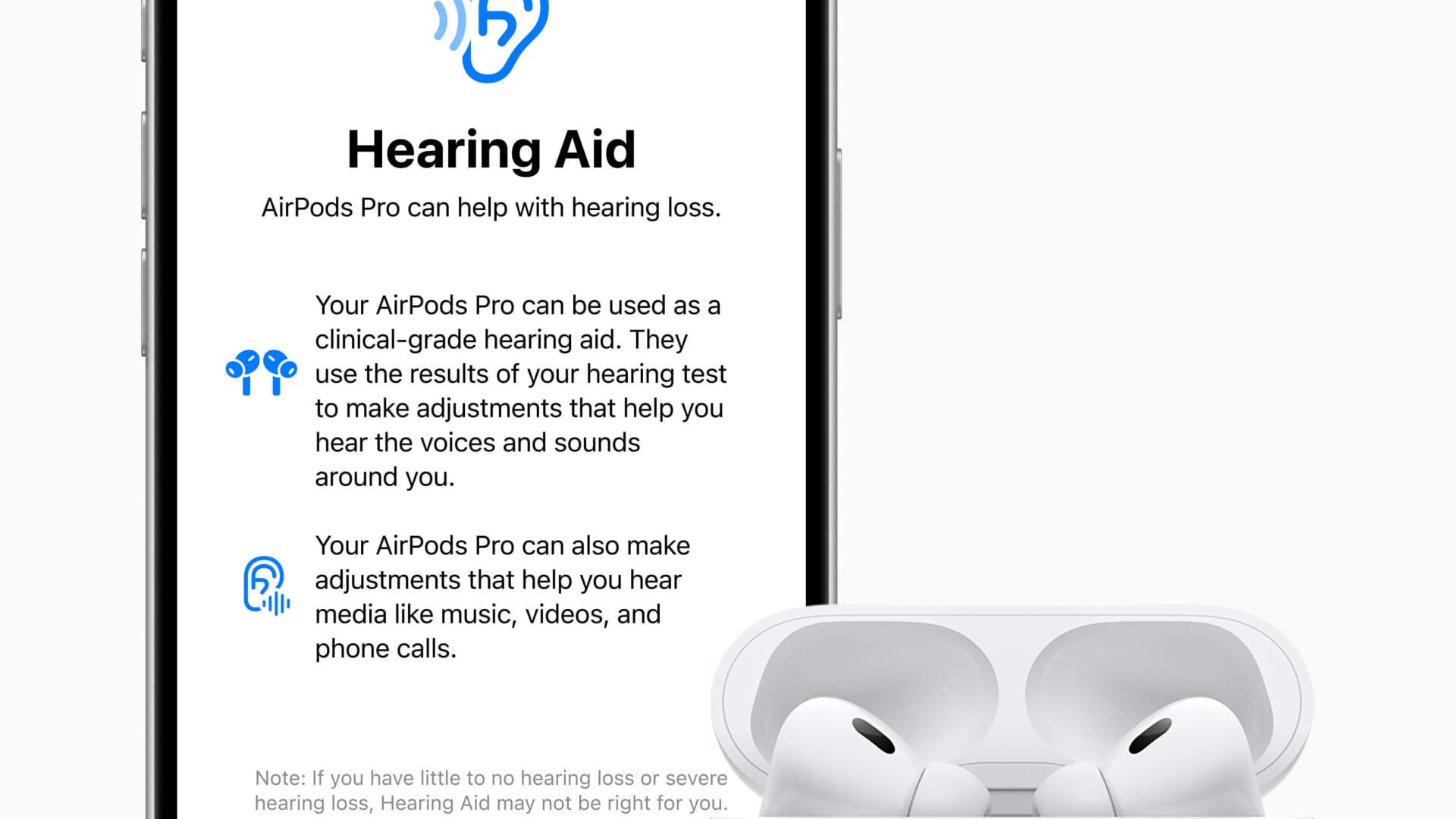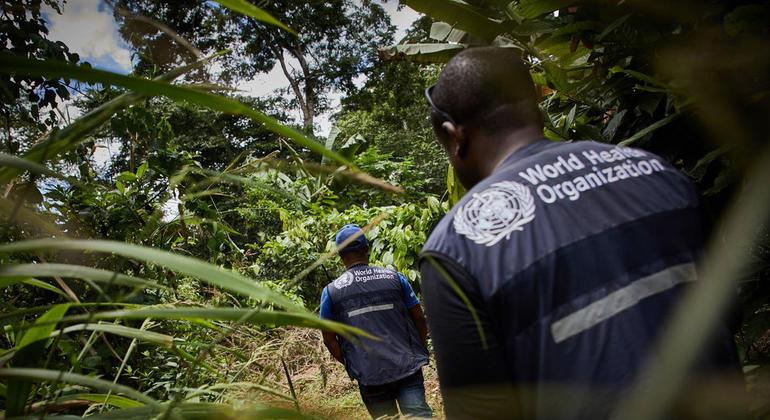The new trial data has cemented Club's lead position behind Eli Lilly in the highly competitive anti-obesity drug race. Eli Lilly's obesity drug Zepbound beat its main rival, Wegovy, made by Denmark's Novo Nordisk, in the first head-to-head trial comparing fast-growing weight loss treatments. Patients taking Zepound lost an average of 20.2% of their body weight after 72 weeks of treatment, compared to 13.7% of those taking Wegovy, Eli Lilly said in a news release Wednesday. Additionally, nearly 32% of people taking Zepbound lost at least a quarter of their body weight versus 16% taking Wegovy, according to the Indianapolis-based drugmaker. Shares of Eli Lilly, a longtime portfolio name, rose more than 2.5% on Wednesday, to about $833 each. Novo Nordisk rose about half a percentage point. Overview Zepbound and Wegovy belong to the booming class of anti-obesity drugs known as GLP-1, which some on Wall Street expect to be worth at least $100 billion by the end of the decade. Initially used to treat type 2 diabetes, its weight-loss capabilities have captivated the public and Wall Street alike in recent years and driven the shares of Eli Lilly and Novo Nordisk to extraordinary heights. Lilly, in particular, has ridden the GLP-1 wave to become the most valuable healthcare company in the world, worth nearly $800 billion. The medications mimic the natural hormone GLP-1 to help regulate blood sugar and suppress appetite, leading to weight loss. Zepbound's active ingredient, tirzepatide, also targets a second hormone abbreviated as GIP, which is believed to provide efficacy advantages over Wegovy. Both medications are once-a-week injections. In fact, the results released Wednesday by Eli Lilly aren't necessarily a surprise considering the amount of clinical trial data that looks at both drugs in isolation. But given the necessary caveats when comparing independent trial results, it's valuable to officially see how Zepbound and Wegovy fared head-to-head. The peer-reviewed results will be published next year. “We expect the results from the HTH (head-to-head) clinical trials to help accelerate Zepbound's market share gains relative to Wegovy,” Leerink analysts wrote in a note to clients on Wednesday. The analysts added that they wanted to see what the tolerability of both drugs was like, something that is not mentioned in Lilly's press release. Novo Nordisk was first to market, and Wegovy received approval from the Food and Drug Administration for obesity in 2021. Its sister drug Ozempic, which shares an active ingredient with Wegovy called semaglutide, was approved for the treatment of type 2 diabetes. 2 in 2017. Ozempic is arguably the best-known GLP-1 drug and some people take it to lose weight. The FDA approved Zepbound in November 2023. Lilly's Mounjaro, which shares tirzepatide as an active ingredient, was approved for type 2 diabetes in May 2022. The success that Novo Nordisk and Eli Lilly have found in the GLP-1 market has sparked a crowded race in the pharmaceutical industry to find the next anti-obesity drug. Novo and Lilly are aggressively defending their turf, investing billions of dollars to build the manufacturing capacity needed to meet current demand while advancing clinical trials of next-generation treatments. Investors anticipate a critical update on Novo's next-generation CagriSema by the end of the year, with expectations that it could achieve more than 25% weight loss in a late-stage trial. The medication combines a compound called cagrilintide with semaglutide. The lead product in Eli Lilly's portfolio is retatrutide, which generated an average weight loss of 24% in a 48-week interim study published last summer. A phase three trial is underway. Simply put, we feel even better about our decision to add to our Eli Lilly position last week; Shortly after, we received the very important news that the Biden administration proposed changes that would expand GLP-1 coverage to millions of Americans with Medicare. and Medicaid that currently lack access. We now have test results showing that Zepbound is, as we have long suspected, superior to Wegovy. Eli Lilly shares sold off last month over concerns that President-elect Donald Trump would nominate pharmaceutical industry critic Robert F. Kennedy Jr. to be the top U.S. health official. However, shares are now up more than 14% since closing at about $727 each on Nov. 18. Our trading restrictions prevented us from increasing our position that day, although we still communicated our wish to the members. LLY YTD mountain Eli Lilly YTD “I think [Lilly stock] “It should go back to the $900 level,” Jim Cramer said Wednesday in the morning meeting. “I think the only determining factor is… [Lilly CEO] Does Dave Ricks have the capacity to meet the demand? That's really the problem.” Since coming to market, both Zepbound and Mounjaro have spent a considerable amount of time on the FDA's drug shortage list. However, as of Wednesday, the FDA says the shortage is has resolved. Lilly executives said in the The company's earnings in late October indicate that production capacity for the drugs should be expanded further in 2025 (Jim Cramer's Charitable Trust is long LLY. See here for a full list). to CNBC Investing Club with Jim Cramer, you will receive a trade alert before Jim makes a trade. Jim waits 45 minutes after sending a trade alert before buying or selling a stock in his charitable fund's portfolio. CNBC TV, please wait 72 hours after issuing the trade alert before executing the transaction. THE ABOVE INVESTMENT CLUB INFORMATION IS SUBJECT TO OUR TERMS AND CONDITIONS AND. PRIVACY POLICY. ALONG WITH OUR DISCLAIMER. NO FIDUCIARY OBLIGATION OR DUTY EXISTS OR CREATES BY VIRTUE OF THE RECEIPT OF ANY INFORMATION PROVIDED IN CONNECTION WITH THE INVESTMENT CLUB. NO SPECIFIC RESULTS OR BENEFITS ARE GUARANTEED.
A sign with the company logo is seen outside the Eli Lilly and Company headquarters campus on March 17, 2024 in Indianapolis, Indiana.
Scott Olson | fake images
The new test data consolidates the Club's holding Eli Lillypole position in the highly competitive anti-obesity drug race.












